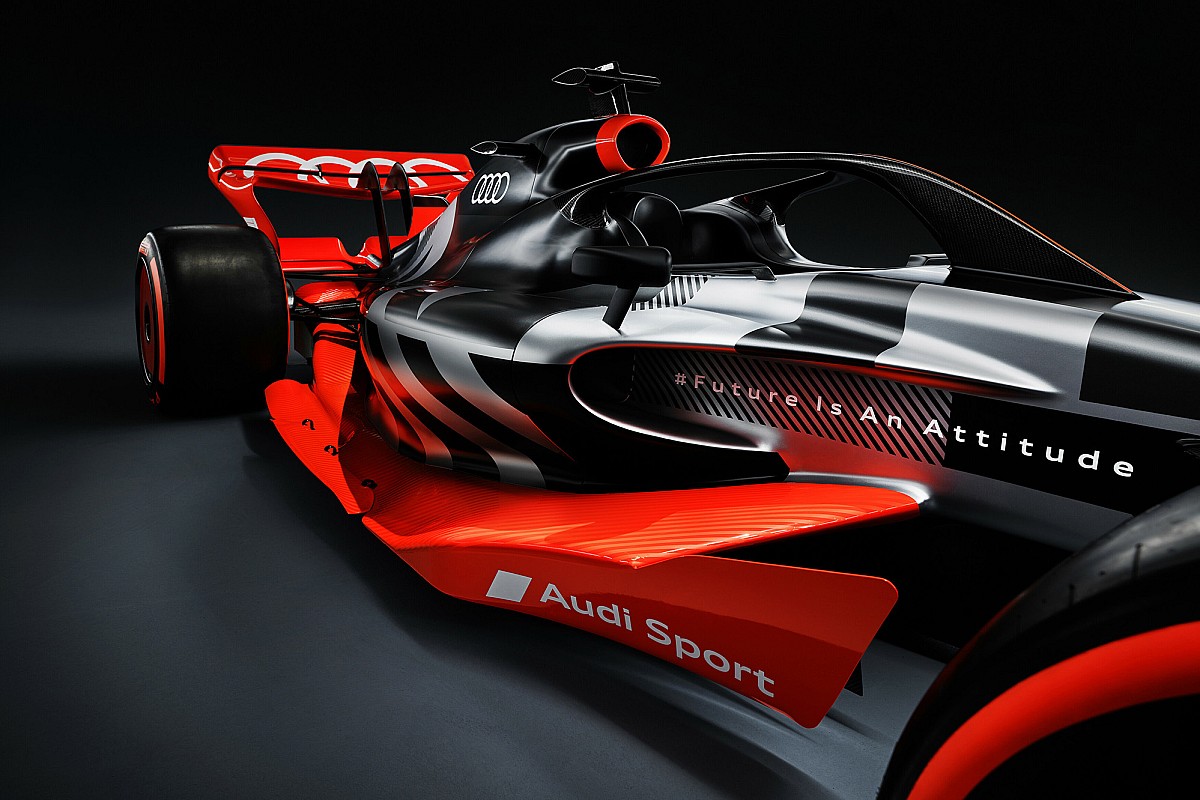The German car manufacturer has finally confirmed its entry into Formula 1 for 2026 At the Belgian Grand Prix on Friday, it revealed that it will design and manufacture its own power unit from its base in Neuburg. It is set to be associated with Sauber, but that plan has not been announced.
Audi’s decision to do its own power unit has sparked some intrigue, as sister manufacturer Porsche, which is expected to announce its entry with Red Bull in the next few weeks, will team up with Milton Keynes to power its very own engine.
This means parent company VW will have to fund two separate engine development programs – which will be far more expensive than sharing and re-evaluating designs.
Speaking about the decision to have separate projects, Audi chairman Markus Diusmann said there had been lengthy discussions within the company about whether or not to pool engine resources with Porsche.
However, in the end, he said, the need to improve the power units for individual teams prompted Audi to do its own thing.
“You can imagine there was a huge debate,” he said. “But we decided, since our brand has a lot of fans and each of our brands has its own character, we should keep them completely separate and do two things.
We had several reasons [for that]. We’ll have different teams, and the powertrain has to be tailored to the chassis. That is why we decided to split it, because we will have a completely different chassis and completely different engines. “
Oliver Hoffmann, head of technical development at Audi, added: “To meet the schedule, the integration of the electrified side of the powertrain, along with the chassis, costs time to make in two cars. So it’s very different processes, and the integration work, we’ll do it ourselves.”
Showcar with Audi F1 launch livery
Photo: Audi Communications Motorsport
Audi lags behind other manufacturers like Mercedes and Ferrari in terms of its understanding of the rules for turbo hybrids in Formula 1, so it has a lot of catching up to do if it is to be competitive from 2026.
However, the car company believes that the way the new rules have been framed, to give more freedoms to newcomers, should allow it to catch up in time.
Hoffman added, “First of all, getting this work done is a really big challenge [by] 2026.
“But I think we found some compromises with the rules that we can get into [equal terms] With all other competitors. We love a challenge.
“We were able to run the Dakar and develop the Dakar, which is also a very complex engine, in less than one year. I believe we will be able to develop this power train as well by 2026.”
“Well obviously we’re in a moment where we are right now,” Deusman said. “The others have engines already running. But the rule changes were big enough for us to see an opportunity to step in and be competitive.”







